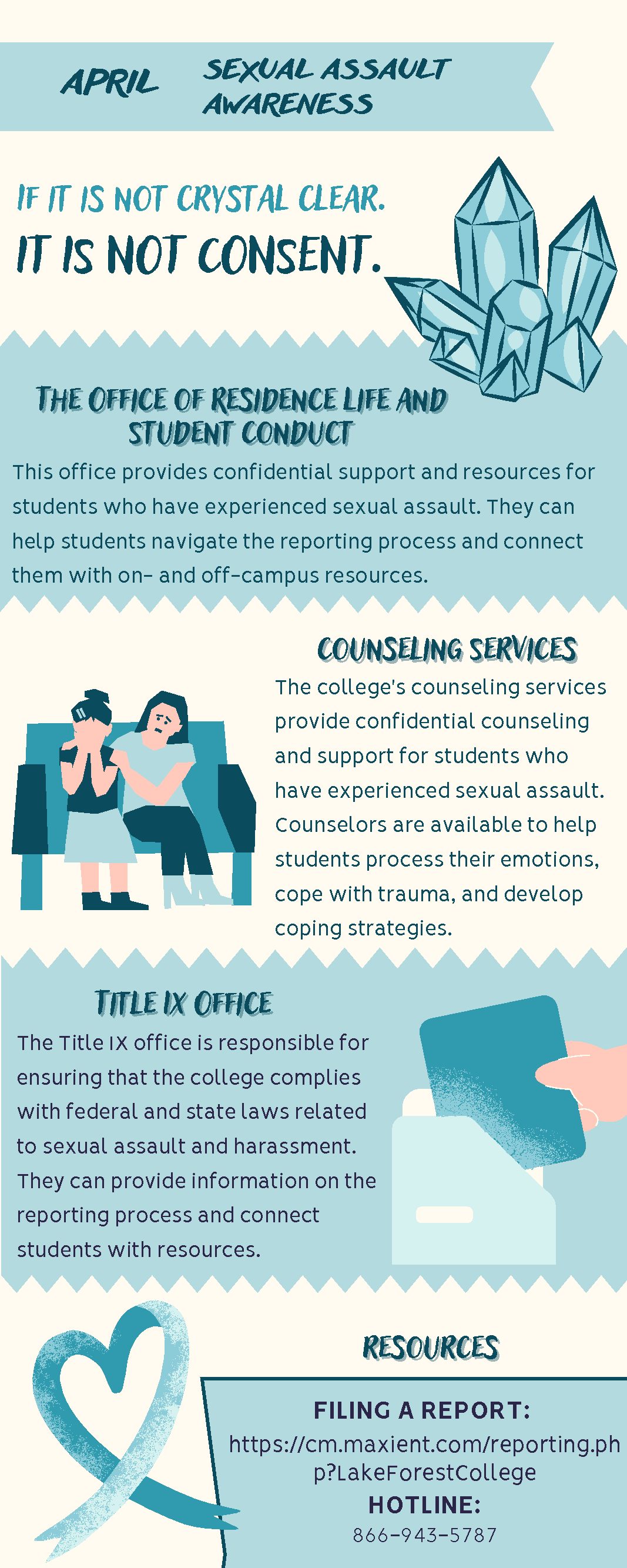The Article below was published in Vol. 136, Issue 3 of the Lake Forest College Stentor on November 13, 2020.
Emma Overton ’21
Editor-in-Chief and News Editor
Due to the COVID-19 pandemic, Lake Forest College held a fully remote fall 2020 semester. With plans to reopen campus for the upcoming spring semester and plans to release a detailed reopening plan the week of Thanksgiving (November 23, 2020), Stentor staff conducted an interview via email with Vice President of Student Affairs and Dean of Students Andrea Conner for preliminary information about the planned return to campus.
On October 21, Conner sent an all-student email asking students to answer a 30-second survey about their intended housing plans for the spring semester. The email further noted that “[o]ur goal is to offer a residential experience on campus for as many students as we can safely house, and to provide regular COVID testing for those in residence or commuting.”
As of November 9, Conner noted that “over a thousand” students had responded to the survey, leaving Residence Life to “follow up with a few hundred people individually…” Conner provided the results of the survey to Stentor staff, explaining that “approximately 63 percent of students want to live on campus,” while “37 percent [do not] need housing due to commuting from home, living in a rental unit, or choosing to learn remotely.”
Discussing how the survey responses will impact spring semester planning, Conner stated that “[w]e are optimistic about how things are looking” but noted that “[w]e do want to reduce the density of the residence halls. The more students that self-select out of housing on campus, the fewer decisions we have to make to limit others who hope to live on campus. Hopefully, we can address everyone’s needs by incentivizing people to commute from home (if applicable) or to learn remotely.”
Addressing the return to campus for international students, Conner stated that, “at this time, the community spread of the virus is such that no country or state-specific limits are imposed upon return to campus.” She further noted that “[w]e do have approximately [twenty-five] of our new international students who have not yet been able to get visa appointments with their consulate, and staff in Student Affairs are working with them directly. If those students do not succeed in obtaining the visas they need, then they can stay home and enroll remotely for spring semester, and we would sponsor their visas starting in summer or fall of 2021.” Acknowledging increasing COVID-19 case numbers in the United States, with 143,408 new cases and 1,479 new deaths as of November 12, according to the Centers for Disease Control and Prevention, Conner stated that “… there is some risk that—if the virus doesn’t improve in the coming weeks—that there will be travel restrictions in or out of the country; we will be watching that closely of course and working with anyone whom that might affect.”
Conner also explained the process for those students who intend to continue learning remotely in the upcoming semester, stating that “[r]emote learners will likely take as many remote courses as possible for their academic progress but will also access in-person/hybrid courses, as needed for their degree, by participating remotely.”
Acknowledging the rising COVID-19 case numbers across the country and their potential impact on a return to campus in the spring, Conner shared that the College’s “planning reflects a multi-pronged approach to returning to campus with many safety precautions in place. No individual approach is perfect, so we must do a variety of things to keep our community safer: 100 percent mask compliance; no large gatherings; arranging for 6 feet of distance whenever possible; reduced density on campus; options to teach/learn/work remotely; showing up for free and regular COVID testing on campus; compliance with the Forester Commitment; and so on. With everyone on board and meeting all of these expectations, we can succeed.”
However, despite these plans, Conner also addressed the possibility that a return to campus would be halted due to the virus. She noted, “[j]ust as we did in the summer, we are watching general infection rates, hospitalization rates and availability, morbidity rates, new science and research, local/state/federal guidance or actions, ability to travel to and from campus, and availability of testing on campus. We will always prioritize the health and safety of the community.”
When asked about how the College Council’s October 26 minutes, which indicated that “[t]he College would face a new deficit of more than $3 million if the spring semester is remote” would impact planning for the spring semester, Conner explained that “College leaders have the job of balancing multiple important needs.” She noted that “[w]hile a potential deficit of this kind would be difficult to face, we will always make decisions based upon the safety of our community.”



